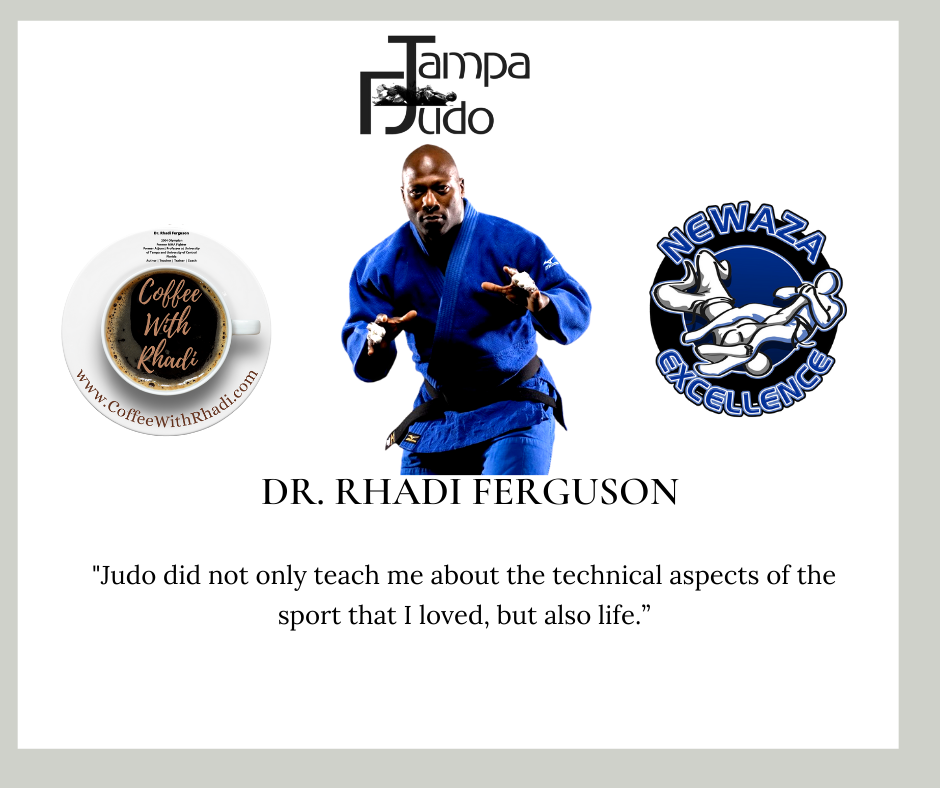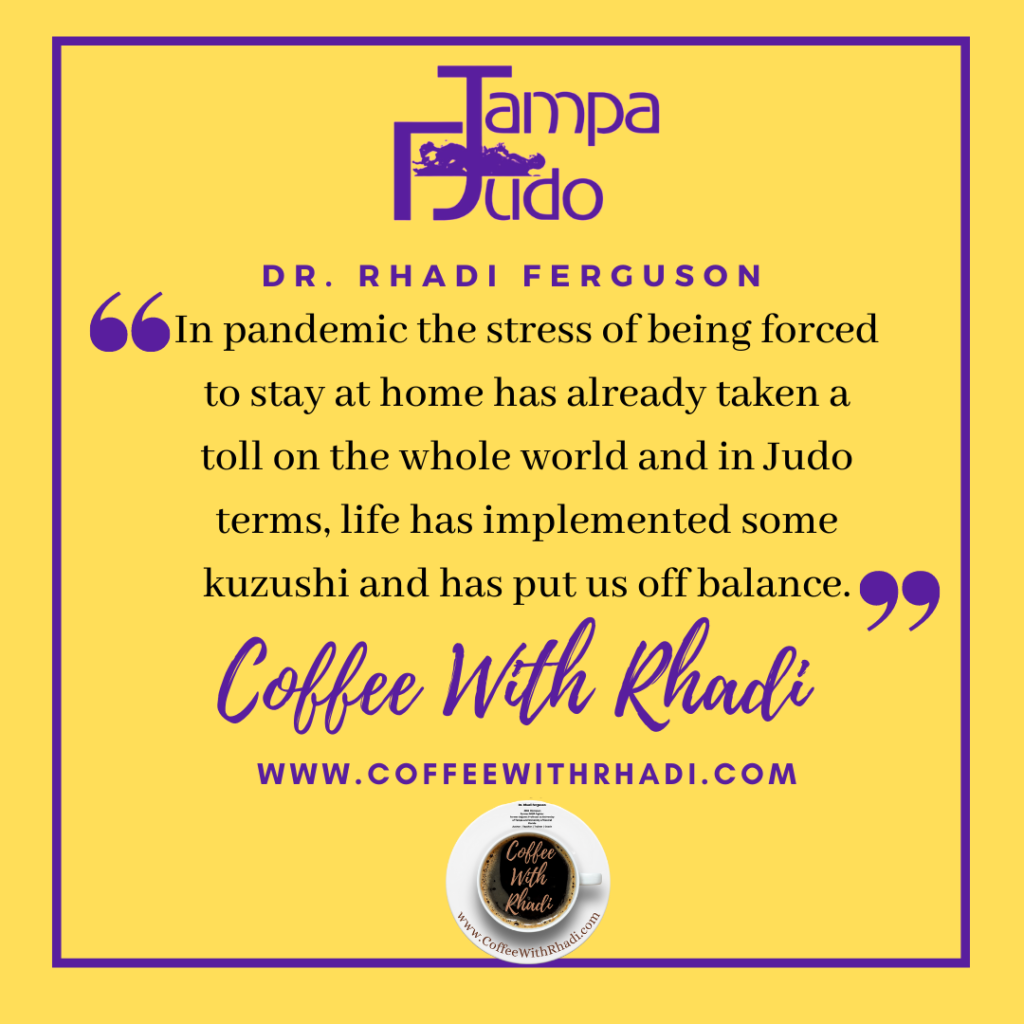My love for Judo started when I was very young living in Miami, Florida. By the time I was seven, I was training on the seventh degree red and white belt Jack Williams. I trained with Jack until I was 12 years old. Then my family moved to Altoona, Pennsylvania. And when I started training at such an early age, I had no idea that what I had gotten myself into. judo was not only going to teach me about the technical aspects of the sport that I loved, but also life. That’s why I wrote this book, “Judo is Life”.

Judo is not about me, it was not about throwing, balling, winning, losing. Judo is this life. I want to take what I’ve learned from judo and share with you so that it can help you too. After moving at the age of 12, I had to give up judo, I didn’t get back into it until I was 22 years old after college. Years later, I became a full-time national judo champion 2004 Judo Olympian, and black belt in Brazilian Jiu Jitsu, an author, speaker, coach, and I’m here to help you get through whatever life throws at you, and also anything else in life that you may be struggling with. That’s my goal.

But I want to share with you the pitfalls that I see many people make when they strive to attain their goals. Do you see there are many, many and perhaps surprising teachings and lessons from Judo that can and will help you if you apply them to your everyday life. You can apply the principles to your athletic endeavors to your health, your relationships, your education, your money, your career, and any other aspects of life. My goal is to help you to see how to apply the four principles of judo in order to not only survive, but thrive in every aspect of your existence. In 2018, I got a voicemail that threw me for a loop. My wife at that time called and left me a message that she was filing for divorce. I didn’t see it coming in and totally rocked and shattered my whole world. I rocked to identify myself, it rocked me in terms of how I saw myself and rocked me in terms of what I wanted in life. And I really felt like my life was open. I can remember hanging on and clinging on to it to a few things. One of them was my faith in God. And the other two are my friends, my family and judo, I would just go to the dojo at night, and throw the grappling dummies until I vomited, collapsed. Working out has always been my go-to when I was frustrated, sad and when I was happy, I don’t drink I don’t smoke, I don’t do drugs. I work out. This is what I do. And the more I was in the dojo, the more I realized how my life was like the dummies that I was throwing. They could take a pounding and be thrown around because that’s what they were made for. They were made to be durable, to be tough, to be resilient. They don’t talk. They’re just there and they’re ready to work. That is what I had to realize. That my life had changed. And that out of all the things in my life that mirrored a real life, Judo was at the top of the list. When everything changed, Judo was dependable. When people changed, Judo was dependable.
And Judo helped save my life and Judo is life when you really get down to what I really learn.
And at the time of this writing, times of tough the Coronavirus pandemic is in full throttle with almost no end in sight. I live in the United States and a new love of tumultuous election and domestic issues are at a boiling point. Many family members and friends that have been lost due to the Coronavirus pandemic and I lost a good friend of mine by the name of Sean Boynes from our university. We played on the same football team together in the 1993 national championship.
We really have an enormous amount of strain on our mental health. Consequently, our physical health and what makes things difficult is that many of us sit on different sides of the political fence, which just adds tension. Some family members aren’t even getting along anymore not even talking or speaking.

The stress of being forced to stay at home has already taken a toll on the whole world and in Judo terms, life has implemented some kuzushi and has put us off balance and in order to stay upright and not fall we must get our footing back. We must come back into balance and regain our footing. This is where the concept of the four parts of judo come into play. And they are
Kumi,
Kanta,
Kuzushi,
Tsukuri
and Kake.
Another general term that we will be using is Ippon.

Ippon is executing a judo throw perfectly in order to get one full point in a judo match. When you do things or you execute things perfectly, do you score any living life.
So, sharing is caring. please take my many years of experience and condense what I’ve learned into the relatively short time will take you to read this book. And understand how you can improve your life through the principles of judo. And my wish for you is that you find the information to be valuable for you, and to you. So many of us just need that one extra little piece of advice that we never thought about in order to move forward and finish. And I hope this book will help prepare that one thing, if not more, to you.
So, let your journey began. You are Listening to, Dr. Rhadi Ferguson, thank you so much for your time and inclination of your ear, and for giving me an opportunity to share with you the story that spawned and created the idea for the book Judo is life.
Please visit http://www.judoislife.net/and have a super fantastic day.

